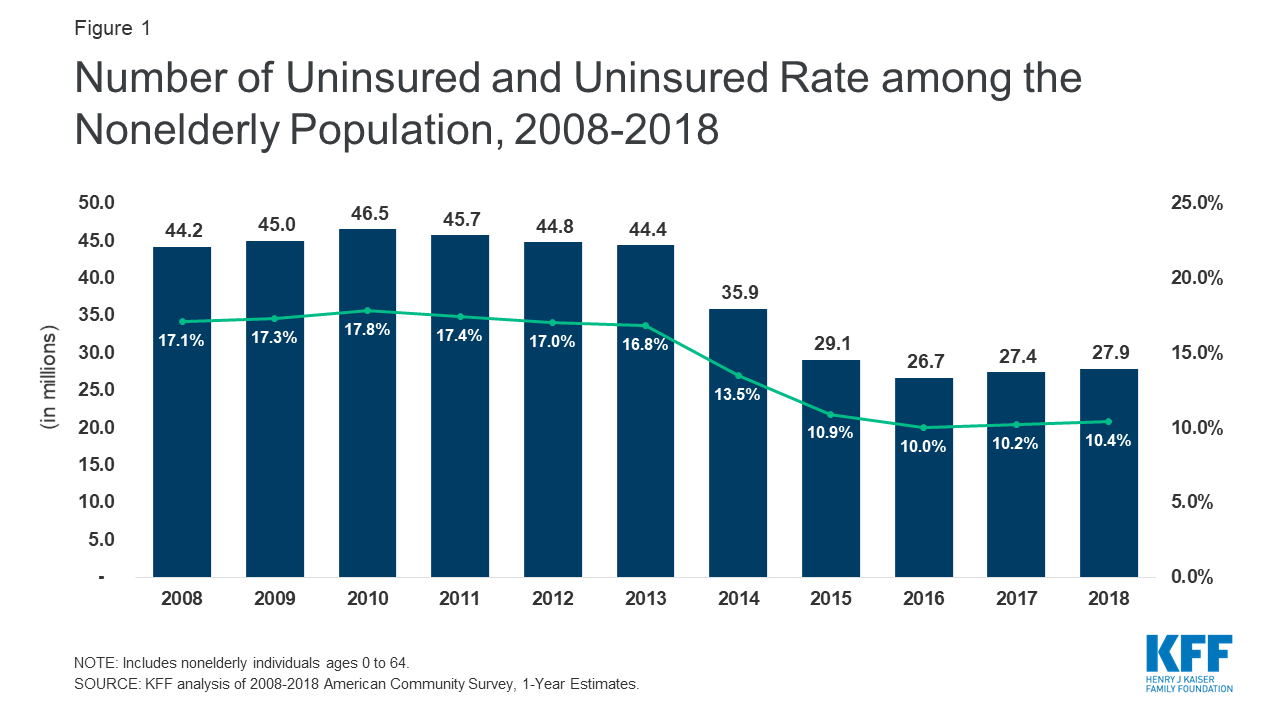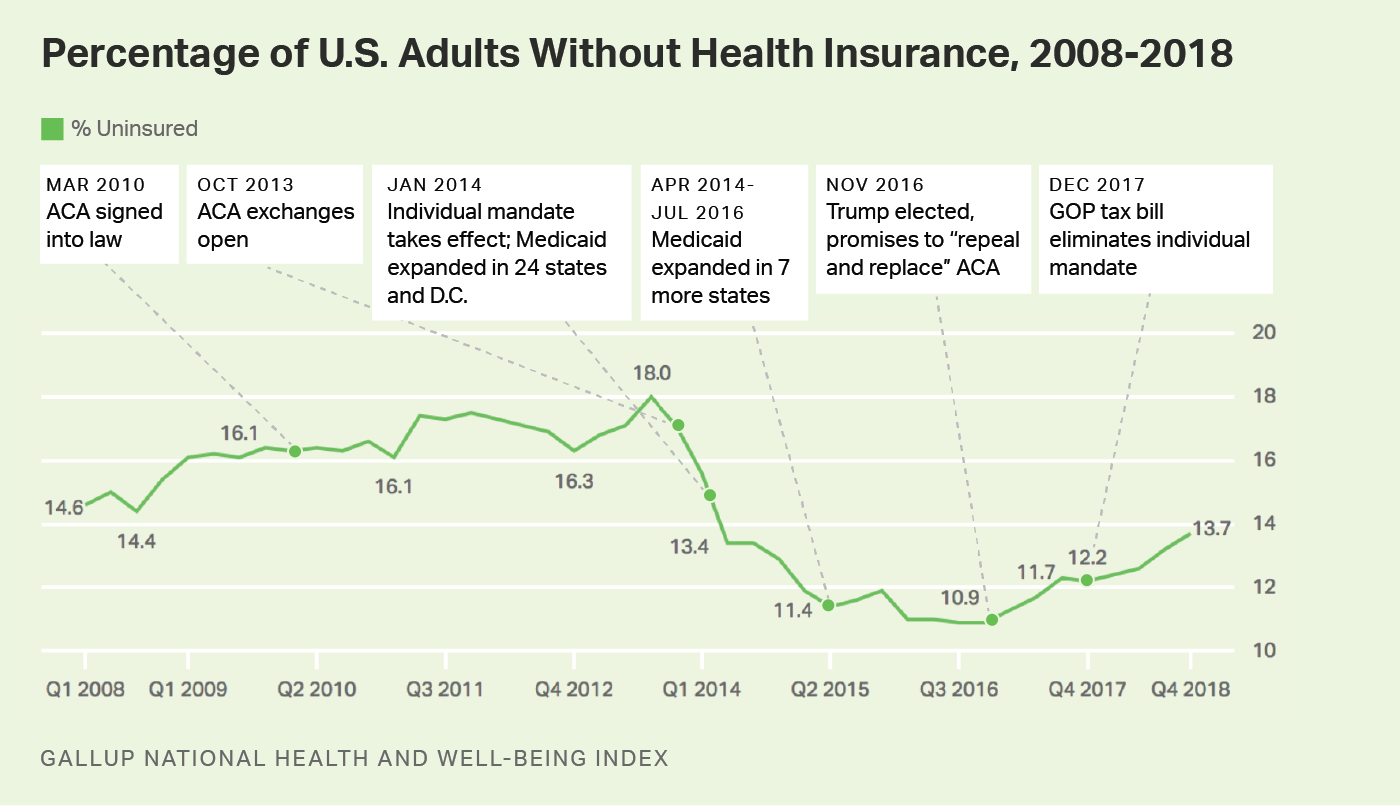Affordable Healthcare
by Andrew Dueñas

by Andrew Dueñas

It's no surprise that Americans are spending an immense amount of money on healthcare every year. Healthcare costs have skyrocketed over the past few years. The U.S. has spent over $3.6 trillion on healthcare in 2018, according to the California National Health Care Foundation. As healthcare costs continue to grow faster than the economy of the U.S. itself, families feel a "pinch." That pinch being insurance premiums and payments they make toward services that their insurance covers (Wilson, 2020). Some families can use their entire savings to pay their medical bills and, in some cases, go bankrupt.
Why is affordable health care critical?
Having an affordable health care system would result in everyone getting the proper treatment that they need rather than companies benefiting from those who can afford it. Many people cannot receive the proper medical attention that they need if they don't visit their doctors. If a person needs to go to urgent care but does not have insurance, prices can vary from $75 upwards of about $175. If that person needs, X-rays or IV, the price can skyrocket. The Emergency room is even more expensive as a pink eye can cost $370 (Urgenway, 2020). These are basic human necessities, and it seems unfair for people to profit off of people's sufferings. During a crisis like the coronavirus pandemic, the U.S. healthcare system is exposed and crumbles for families that cannot afford proper treatment needed.
Having healthcare ensures that all Americans have some kind of coverage that doesn't cost them an arm and a leg. By having affordable health care, it will put money into families' pockets and bring down the unemployment rate. It will be easier for families to access health care services, as a result, increase the demand for goods and services in the economy. It can also ensure that getting sick no longer means financial ruin (Furman, 2014). Also, having affordable healthcare will cut pricey U.S. health care costs and help stop health care spending, which will benefit the economy.
Why it matters to me
I have always been blessed with health care, thanks to my parents, and I thank them for it very much. I have family members that cannot afford to visit their doctors because of high medical bills, and it's a sad sight to see, but it is a problem that exists everywhere in America today. These family members have to take over the counter medicine or in some cases none at all because they don't have a healthcare provider to prescribe the medication. I had a family member who passed away because she had an underlying heart issue and without a doctor, and she passed away in her sleep. If she had insurance, she would still be here today. By having affordable health care, I can stop worrying about what my children are going to pay for their protection as well as ensure that their children are going to pay. In other countries, they have universal health care that is given to everyone, whether you have high or low income. It comes at the cost of higher taxes, but would you pay a little more to ensure that you always know that you can go to the doctors if you aren't feeling ok.
# of Uninsured People
- About 8.5 million Americans signed up for the Affordable Care Act insurance in 2019 (Humer, 2018).
- In 2017, 73.8 million people were enrolled in the ACA-based Medicaid Insurance program (Arevalo, 2020).


According to both KFF and Gallup National Health and Well-bing Index, after Medicaid was signed into law, the number of uninsured people decreased. The number has begun to incline due to Trump's promise to repeal and replace Medicaid. As of February 20, 2020, Trump has made changes to Medicaid, but it is far from what should have been done. He's imposed premiums to all people on Medicaid and has made it so that it lets states take away coverage from those who don't meet the working requirement (Center on Budget and Policy Priorities, 2020).
What you can do!
One of the most important things that one can do is vote and stay informed. It is crucial to follow candidates that can help benefit affordable health care.
Work Cited:
Wilson, K. (2020, January 10). 2020 Edition — Health Care Costs 101. California Health Care Foundation. https://www.chcf.org/publication/2020-edition-health-care-costs-101/UrgentWay. (2020, February 17). How much does the urgent care cost?https://www.urgentway.com/resources/cost-of-urgent-care/
Furman, J. (2014, February 7). Six economic benefits of the Affordable Care Act. whitehouse.gov. https://obamawhitehouse.archives.gov/blog/2014/02/06/six-economic-benefits-affordable-care-act
Humer, C. (2018, December 19). Sign-UPS for 2019 ObamaCare insurance fall to 8.5 million people. Reuters. https://www.reuters.com/article/us-usa-healthcare-insurance/sign-ups-for-2019-obamacare-insurance-fall-to-85-million-people-idUSKCN1OI2GH
Arevalo, T. (2020, April 4). 28 Affordable Care Act Statistics and Facts (2020). Policy Advice. https://policyadvice.net/health-insurance/insights/affordable-care-act-statistics/
Center on Budget and Policy Priorities. (2020, February 4). Trump administration’s harmful changes to Medicaid. https://www.cbpp.org/research/health/trump-administrations-harmful-changes-to-medicaid
No comments:
Post a Comment